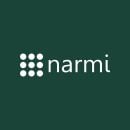Many of us have heard male technologists share their inspiring stories about discovering a passion for technology, and many of us have also wondered, “What is the experience like for women?”
As industry data has revealed, the experience is certainly different — and more challenging. According to the American Association of University Women, women hold just 21 percent of engineering majors and around 19 percent of computer and information science majors, meaning that fewer women than men end up in technical roles in the workforce.
But despite these statistics, there are still many women who develop a fascination with technology at a critical point in their academic or professional careers.
For Trisha Kulkarni, this fascination showed itself to her when she was an economics student at the University of California, Los Angeles, and grew stronger once she began working as a technology consultant.
While working with startups as a consultant, she cultivated a strong interest in building products, which eventually gave way to a career in product management. Kulkarni, who currently works as a senior product manager at Narmi, said relationship building has played a critical role in her tech journey, connecting her with individuals who have inspired and guided her.
All in all, Kulkarni’s experience discovering — and harnessing — a passion for technology has set her on a fulfilling career path filled with meaningful connections and opportunities to make an impact on others. Read on to learn more about how she began her tech journey, how she has overcome challenges along the way and the role support has played in her success.
About Narmi
Narmi’s platform enables banks and credit unions to offer digital banking services. Some of the platform’s features include automated identity decisioning, which helps financial institutions eliminate fraud, and embedded business intelligence, which drives data-driven decision-making.
What’s your current tech role, and what first sparked your interest in that field?
I’m currently a senior product manager at Narmi, leading our account-opening products. I joined the company two years ago as one of the first individual contributor product managers, and since then, we’ve seen the product team grow from two to eight individuals. I’ve also helped build four products on my team, with a fifth one in the works, and transitioned from an IC position to a management role.
Broadly, my current role is to build and grow products that help community banks and credit unions with digital banking needs. Our customers are the lifeblood of the U.S. economy, and we want to help them be innovative and embrace top-notch digital experiences.
I attended the University of California, Los Angeles, and studied economics in undergrad. As a student, I developed a deep interest in tech innovation but was unsure about where to start in the industry. I landed in technology consulting at Deloitte, mainly driven by the opportunity it provided working across industries and getting exposure to complex problems. While I was there, I sought out a team that worked with startups to help them pitch their products to Fortune 500 customers. Working with these startups, I found that I was drawn to being on the startup side and building software products.
Share a bit about your journey into tech. What challenges did you face — and overcome — along the way?
As my fascination with startups grew, I became especially interested in the role of a product manager. It seemed like the perfect mix of analysis, strategy and collaboration to build products from the ground up.
“It seemed like the perfect mix of analysis, strategy and collaboration to build products from the ground up.”
The first challenge was product recruitment. There were copious amounts of information regarding the structured interview process for big tech companies, but the process was highly unstructured for startups, as it should be. Startup recruiting should not be a checklist; it requires the right “fit,” since each individual hire can impact the team’s momentum. My approach was to proactively get to know startups’ cultures and teams and demonstrate my skills through everything, from project deep dives to mock product requirements documents.
The other challenge was building product sense that translated into impactful decisions. I started by immersing myself in the fundamentals of software product businesses and deeply understanding customer pain points. This helped me prioritize and drive the right outcomes. Secondly, I derived learnings from similar companies that had become “greats” in the industry. Lastly, I highly recommend documenting and then reflecting on and dissecting key decisions you’ve made.
How did mentors and peers help you advance your interests and profession, and how do you pass that support on to early-career professionals?
Relationship building has been critical in my tech journey. In July 2020, I reached out to the head of product at the startup I ended up working at, simply to learn more about the company. After the initial call, I kept in touch through check-ins, and in February 2021, she mentioned the company was going to post a product role the following week. I had built a strong relationship at that point and knew a lot about the startup. That’s all to say I ended up landing the role as an associate product manager and officially broke into tech.
It’s important to have strong relationships, both inside and outside the organization, for career development. Internally, attract champions who will inspire and guide you and also advocate for you and help your career grow. The best way to build this trust is by demonstrating a strong track record and having tangible impact.
Externally, it’s important to have mentors who you can bounce ideas off of and provide unbiased advice, and do the same for other product managers early in their careers. Recently, it was rewarding to have helped facilitate an internal transfer for a junior product manager who wanted a role more closely aligned with her interests.







